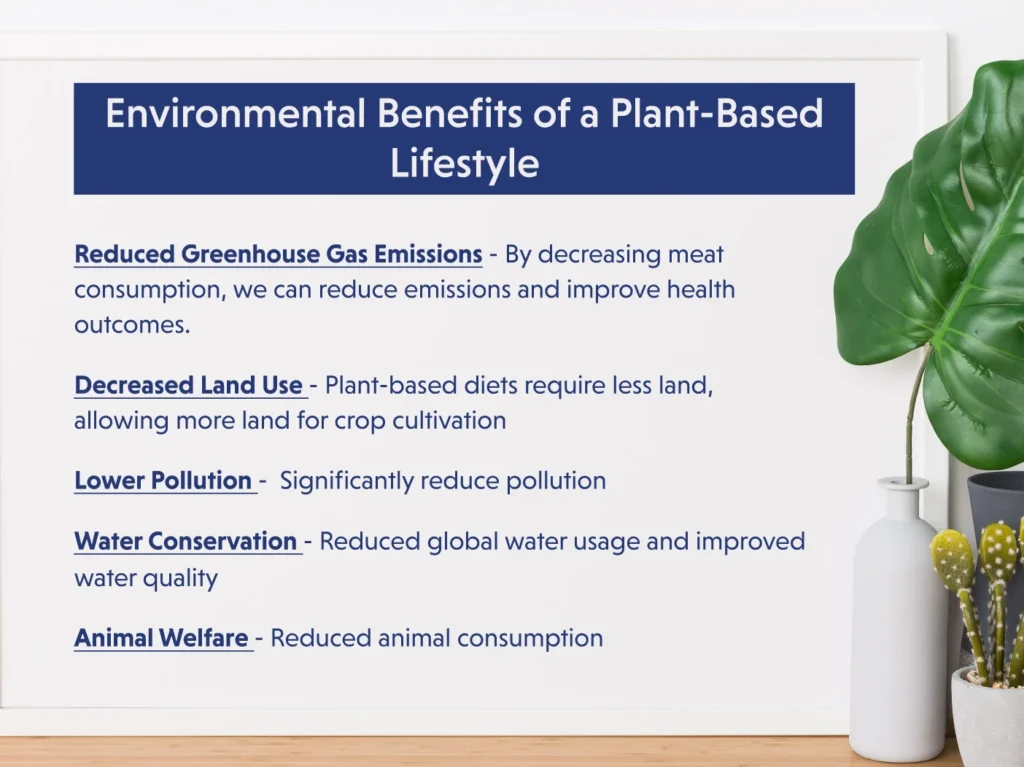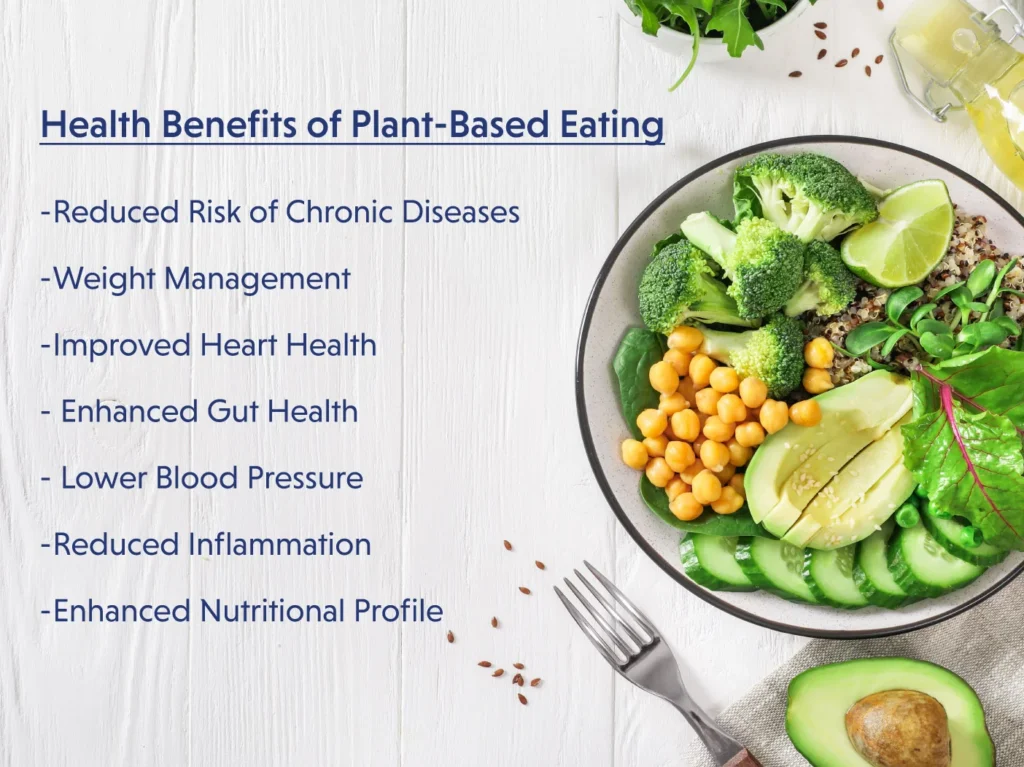In recent years, plant-based diets have garnered substantial attention and popularity thanks to their potential advantages for health and the environment. As more people seek healthier and more sustainable eating methods, vegetarian and vegan lifestyles have emerged as viable options. Download Joyscore and delve into the health benefits of plant-based eating, highlighting the advantages of adopting a vegetarian or vegan diet.
I. What is Plant-Based Eating?
Plant-based eating revolves around consuming foods derived mainly from plants, such as fruits, vegetables, grains, legumes, nuts, and seeds. While vegetarianism involves abstaining from meat, poultry, and fish, veganism takes it a step further by avoiding all animal products, including dairy, eggs, and honey.
II Environmental Benefits of a Plant-Based Lifestyle

1. Reduced Greenhouse Gas Emissions: Food production generates 30% of human-generated greenhouse gas emissions, with meat production being the largest contributor. By decreasing meat consumption, we can reduce emissions and improve health outcomes.
2. Decreased Land Use: Food production is responsible for 80% of deforestation and threatens biodiversity. Plant-based diets require less land for meat and dairy production, allowing more land for crop cultivation and promoting species diversity.
3. Lower Pollution: Food production causes 35% of plant-warming pollutants, and the meat industry is a major pollution source. Transitioning to a plant-based lifestyle can significantly reduce pollution by almost 50%.
4. Water Conservation: Livestock production uses 24% of global freshwater, while plant-based diets require less water. Shifting to plant-based eating can reduce global water usage by around 14% and improve water quality.
5. Animal Welfare: Ethically sourced animal products and reduced animal consumption decrease demand for mistreated animals. In-vitro meat and plant-based alternatives offer environmentally friendly and ethical alternatives to traditional meat production.
By adopting a plant-based lifestyle, individuals can contribute to a sustainable future, minimize their carbon footprint, and protect the environment.
III. Health Benefits of Plant-Based Eating:

1. Reduced Risk of Chronic Diseases:
Plant-based diets have reduced the risk of chronic diseases, including heart disease, high BP, type 2 diabetes, and certain types of cancer. The abundant fiber, vitamins, minerals, and antioxidants found in plant-based foods contribute to overall better health.
2. Weight Management:
Plant-based diets are lower in calories and saturated fats, making them an effective choice for weight management. The high fiber content in plant-based foods promotes satiety and helps control cravings, aiding in weight loss and maintenance.
3. Improved Heart Health:
By eliminating or reducing animal products, plant-based diets naturally lower cholesterol levels and reduce the risk of heart disease. Consuming a variety of plant foods rich in antioxidants, phytochemicals, and healthy fats, such as avocados and nuts, supports cardiovascular health.
4. Enhanced Gut Health:
Plant-based diets are rich in fiber, which promotes healthy digestion and maintains a diverse and balanced gut microbiota. A healthy gut microbiome improves immune function, reduces inflammation, and results in better overall well-being.
5. Lower Blood Pressure:
Plant-based eating has been linked to lower blood pressure levels, attributed to its low sodium content and high potassium intake. Consuming a diet abundant in whole grains, fruits, and vegetables offers vital nutrients that aid in the regulation of blood pressure.
6. Reduced Inflammation:
Chronic inflammation is a contributing factor to various diseases. Plant-based diets, abundant in antioxidants and anti-inflammatory compounds, can help reduce inflammation, enhancing overall health and well-being.
7. Enhanced Nutritional Profile:
While concerns about nutrient deficiencies may arise with plant-based diets, a well-planned vegetarian or vegan diet can provide all necessary nutrients, including protein, iron, calcium, and omega-3 fatty acids. Plant-based alternatives like tofu, legumes, leafy greens, and fortified foods can adequately meet nutritional requirements.
IV. Adopting a Plant-Based Lifestyle:
Transitioning to a plant-based lifestyle can be approached gradually, allowing the body to adjust to new eating habits. Consider the following tips:
1. Start with small changes: Incorporate more plant-based meals into your diet and reduce animal product consumption.
2. Explore new recipes and ingredients: Embrace the variety of plant-based foods available and experiment with different recipes to discover exciting flavors and textures.
3. Educate yourself: Learn about the nutritional aspects of plant-based diets to ensure you meet your body’s needs. Consult a registered dietitian for personalized advice.
4. Find plant-based alternatives: Discover the array of plant-based alternatives for meat, dairy, and other animal products, which can make the transition easier.
V. Macro and micronutrient intake in plant-based diets
Nutritional adequacy is a concern for plant-based diets, especially strict vegan diets that exclude all animal foods. Some micronutrients, like iron, vitamin A, and zinc, may be less easily absorbed from plant foods compared to animal foods. However, by planning a diverse vegan diet that includes a variety of plant foods, recommended levels of these micronutrients can still be achieved. Vitamin D and vitamin B12, mostly found in animal sources, can be obtained through fortified foods and sun exposure (for vitamin D). It’s important for vegans to be aware of potential micronutrient deficiencies.
Protein intake in vegan diets generally meets recommendations, although it tends to be lower compared to less restrictive plant-based diets. However, it’s important to note that research in this area is limited and based on a small number of studies.
A systematic review found that vegan diets often have lower intakes of vitamins B2, B12, D, iodine, zinc, calcium, and selenium. A well-functioning nervous system relies on the presence of Vitamin B12 for optimal health. Also, vegan diets have lower consumption of saturated fat and higher consumption of beneficial unsaturated fat. However, these diets are not associated with a risk of insufficient intake of other vitamins and minerals like A, B1, B6, folate, C, E, iron, phosphorus, magnesium, and copper in adults.
Conclusion:
Embracing a plant-based diet, whether vegetarian or vegan, offers numerous health benefits. By prioritizing whole, plant-based foods, individuals can reap the rewards of a healthy and environmentally friendly lifestyle.
Remember, always consult with a healthcare professional or registered dietitian before making significant dietary changes to ensure you meet your nutritional needs and achieve optimal health. The health benefits of plant-based eating are abundant, and with careful planning, you can enjoy a vibrant and fulfilling vegetarian or vegan lifestyle.



